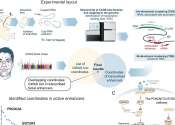Amount of protein consumed by pregnant women modulates the facial appearance of offspring, study finds
An international team of researchers has found that the amount of protein consumed by pregnant women can impact the facial development of their offspring. In their study, published in the journal Nature Communications, the ...









